The Cohort Coordination Board (CCB) is composed of EU and nationally funded projects conducting COVID-19 cohort-based research alongside representatives from the European Commission and other relevant initiatives such as the European COVID-19 Data Platform, partners from industry and other stakeholders (e.g., European Medicines Agency (EMA), European Centre for Disease Prevention and Control (ECDC) and European Federation of Pharmaceutical Industries and Associations (EFPIA)).
The board is organised into two levels, namely with a core group and extended group who participate as the need arises and according to the topic of discussion.
members
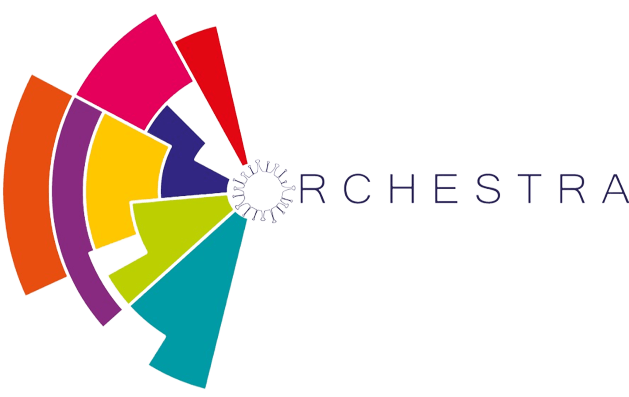
ORCHESTRA
ORCHESTRA is a three-year international research project aimed at tackling the coronavirus pandemic. Their vision is to establish an international large-scale cohort for the conduct of retrospective and prospective studies in order to generate rigorous evidence to improve the prevention and treatment of COVID-19 and to be better prepared for future pandemics.

VERDI
VERDI is a project that prioritises pregnant women, children and high-risk populations in research on new SARS-CoV-2 variants of concern. It also focuses on preparedness for future infections outbreaks, building on experiences with COVID-19 and monkeypox.

CoMeCT
The CoMeCT project is a Coordination and Support Action (CSA) that aims to strengthen Europe’s clinical research preparedness and response to infectious disease outbreaks with epidemic and pandemic potential by facilitating strategic and scientific coordination of adaptive platform trials and cohort studies.
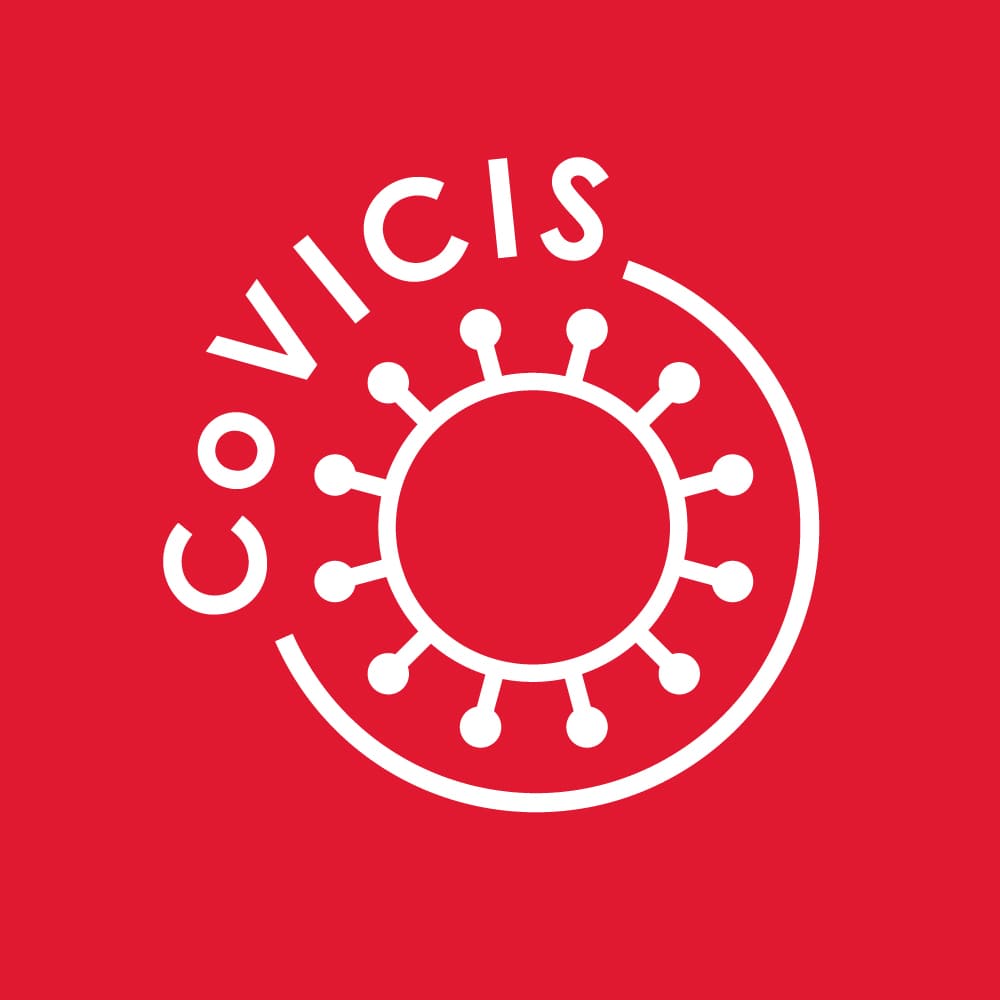
CoVICIS
A global approach coupling powerful state-of-the-art virologic and immunologic platforms with large genomic surveillance studies and diverse cohorts in Europe and sub-Saharan Africa. They aim to contribute to the early identification of emerging VOC by obtaining in-depth understanding of the risk and protective factors to SARS-CoV-2 infection as well as the evolution of the virus in different risk, gender and age groups.

unCoVer
unCoVer is a functional network of partners capable of harvesting real-world data derived from the response and provision of care to patients by the health systems across Europe, and internationally during the COVID-19 pandemic.
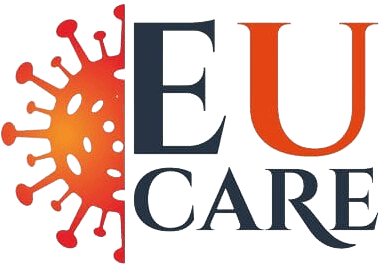
EuCARE
EuCARE studies the COVID-19 epidemics and in particular the newly emerging SARS-COV-2 variants under several aspects of high social impact. With the support of strong immuno-virological and artificial intelligence components, the project studies cohorts of acute and post COVID-19 conditions, of healthcare workers and of schools in Europe, Kenya, Mexico and Brazil to find an answer to urgent issues related to science and society.

REACT
Very few antiviral drugs have been approved for treating lower respiratory tract infections caused by influenza virus, respiratory syncytial virus and SARS-CoV-2. This paucity underscores the need for a better understanding of host-virus interaction during infection, to identify novel therapeutic targets. To address this unmet need, the EU-funded REACT project will investigate cellular, humoral and innate immunity during infection from these viruses. Using machine learning, researchers will analyse data from different ethnicities and disease severity and provide fundamental insight into immune response dynamics. Results on the identified factors critical for viral control and immune protection will be made widely available to aid the design of novel and personalised treatments against respiratory viruses.

ECRAID
Ecraid’s purpose is to reduce the impact of infectious diseases on individual and population health. The emergence and spread of antimicrobial resistance and the (re)emergence of new pathogens, such as SARS-COV-2 causing the COVID-19 pandemic, has further increased mortality and morbidity.

END-VOC
By improving data collection and analysis from a variety of cohorts, END-VOC aims to help the rapid identification and characterisation of emerging variants. Their results will expand beyond COVID-19, impacting the global response to other infectious disease outbreaks.

LONG COVID
The Long COVID project aims to understand mechanisms of Long-COVID Syndrome by combining front-line expertise from the fields of clinical medicine, virology, metabolism, and immunology. The project will also develop and apply a machine learning (ML) and artificial intelligence (AI)-informed Long Covid Prediction Support (LCPS) tool to predict and stratify the LSC patients.

VACCELERATE
VACCELERATE is a clinical research network for the coordination and conduct of COVID-19 vaccine trials. The network is comprised of academic institutions from all over Europe: The consortium is led by the University Hospital Cologne, Germany, and currently includes 29 national partners in 18 EU-member states and 5 countries associated to the EU Horizon 2020 research programme.

European COVID-19 Data Platform
The COVID-19 Data Portal was launched in April 2020 to bring together relevant datasets for sharing and analysis in an effort to accelerate coronavirus research. It enables researchers to upload, access and analyse COVID-19 related reference data and specialist datasets as part of the wider European COVID-19 Data Platform.

SYNCHROS
The Project: SYNergies for Cohorts in Health: integrating the ROle of all Stakeholders. The results of our work, e.g. from mapping the cohort study landscape, compilations of legal and ethical requirements and methodological concepts, will be shared and translated into strategy briefs to facilitate stakeholder dialogues. We also aim to make sustainable recommendations on standards to improve the compatibility of future data collection, e.g. for data sharing methods towards an international strategic agenda to improve the coordination of cohorts globally.

NMCB
The Netherlands ME/CFS Cohort and Biobank Consortium (NMCB) aims to establish a patient cohort with a biobank. 750 Myalgic encephalomyelitis/chronic fatigue syndrome (ME/CFS) patients will be recruited and followed for 8 years. Approximately one quarter of the cohort consists of severely ill patients who are home- or bed-bound. 450 healthy individuals and 500 people suffering from related diseases such as long COVID, Lyme disease, Q fever, and MS will be recruited as controls. In addition, a separate cohort of 180 young patients aged 12 and above, along with 80 controls, will be recruited.
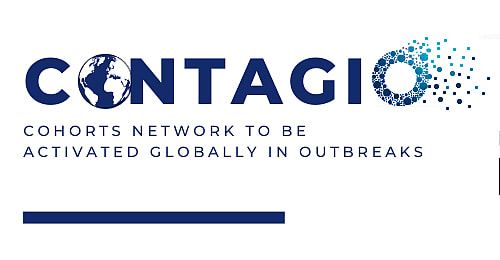
CONTAGIO
CONTAGIO aims to create coordination mechanisms to rapidly react to infectious disease (re-)emergence in low- and middle-income countries. The Consortium builds on the experience acquired through other EC-funded projects ReCoDID, ORCHESTRA, ZIKAlliance, and IDAMS. CONTAGIO is funded by the European Union (GA-Grant Agreement N. 101137283) and includes 18 partner institutions from Europe, North America, Latin America, Asia, and Africa.
German Mpox Cohort
The German Mpox cohort is a retrospective cohort study, operating in 42 centres across Germany, and has described the clinical characteristics of the first mpox outbreak in Germany in 2022 in 546 patients. A follow-up is currently planned to give more insight into the long-term effects of the virus.
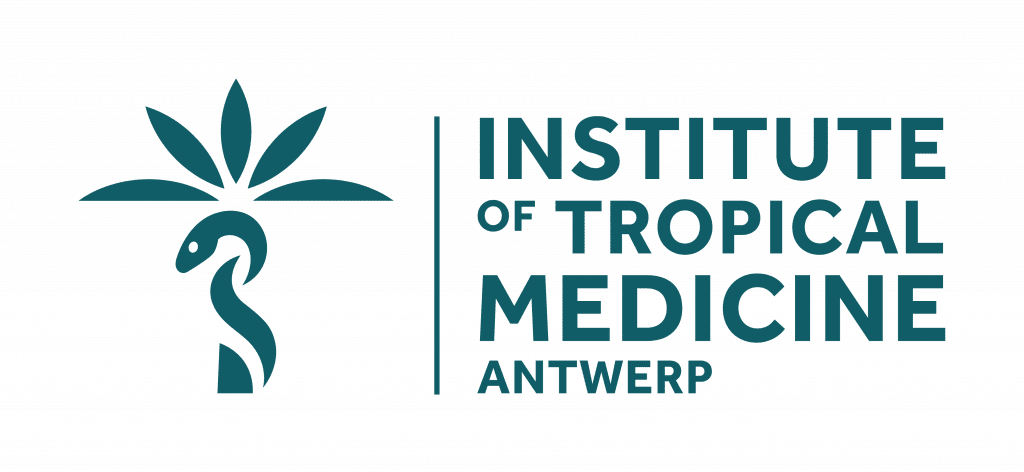
ITM Antwerp
Individuals diagnosed with mpox at the Institute of Tropical Medicine Antwerp are evaluated at diagnosis and followed up with intervals of 8 to 12 months after the infection. Data and samples are systematically collected, to provide insights into clinical, virological, immunological, and epidemiological aspects of mpox.
MoVIHvax
The MoVIHvax cohort, established in September 2022, aims to characterise vaccine-induced responses to mpox in populations with and without HIV. The study has enrolled 144 individuals with and without HIV who have been vaccinated with two doses of the MVA-BN vaccine, administered either subcutaneously or intradermally. Prospective follow-up involves the collection of clinical data through a RedCap eCRF and peripheral blood for PBMC/plasma isolation and PaxGene tube samples, continuing up to 2 years post-vaccination. Additionally, individuals who experience breakthrough mpox infection despite confirmed complete vaccination are recruited in the MoVIHvax breakthrough mpox subgroup and sampled at the time of mpox diagnosis and again 1-3 months later. Recruitment occurs at three STI and HIV clinics in the Barcelona Metropolitan area, with immune analyses (humoral and cellular immune responses) conducted at IrsiCaixa, Badalona, Spain.
Mpox-ICONA
Mpox-ICONA is a multicentre historical cohort study implemented within the Italian cohort naïve antiretrovirals (ICONA) clinical network.
ICONA is the largest clinical network for HIV in Italy, including more than 21,000 people living with HIV enrolled in 64 clinical centres. Its network has been exploited to collect data on people at high risk of mpox (which recognises an epidemiological network that overlaps with HIV).
The aim of Mpox-ICONA cohort is to assess mpox disease from the clinical and virological points of view. Moreover, the cohort studies immunological issues related to mpox infection and MVA-BN vaccination.

MOSAIC
The MOSAIC cohort was established in May 2022 within the EU-funded MPX-RESPONSE project. The cohort enrolled a total of 619 participants in Belgium, Switzerland, France, Italy, Spain and the UK. The study is both retrospective and prospective, with a focus on describing the clinical and virologic characteristics and outcomes of participants with laboratory-confirmed mpox, treated and not treated with tecovirimab or other antiviral drugs.
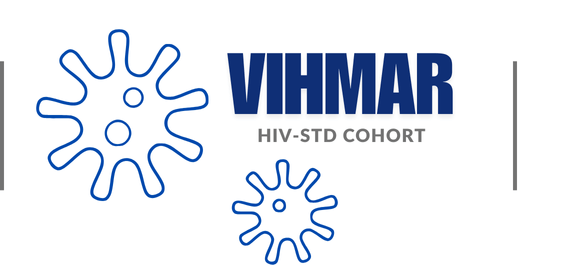
VIHMAR
The VIHMAR Cohort, established in 2021, is based at Hospital del Mar in Barcelona and focuses on studying HIV and sexually transmitted diseases in the city’s coastal area. Its aim is to prospectively collect data since 2023 and retrospectively analyse information dating back to 2019, creating a robust registry to better understand epidemiological trends, clinical presentations, and transmission dynamics. The cohort has developed specific research focuses on various STDs, including Mpox, and serves as a valuable platform for collaboration with other national and international cohorts. By integrating a biobank with biological specimens, VIHMAR supports cutting-edge research and enables targeted interventions to improve prevention, diagnosis, and management strategies for HIV and STDs.
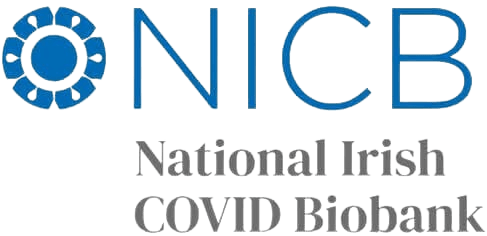
NICB
The National Irish COVID-19 Biobank is a nationwide project, which began in 2021. The project involves hospitals and universities across Ireland working together to create one large biobank to help research on COVID-19 in Ireland and overseas. The establishment of the National Irish COVID-19 Biobank is part of the state’s strategic response to COVID-19. The provision of a biobank of biological specimens and linked clinical information (data) will support high impact research into the causes, progression, diagnostics and treatment of COVID-19. The overall objective of the NICB is to create a harmonised, shared platform for COVID-19 research that strengthens national research infrastructure and enables Irish and international researchers to address the research challenges presented by SARS-CoV-2.
VEBIS
The VEBIS network aims to provide technical support to the European Centre for Disease Prevention and Control to build an infrastructure to allow regular monitoring of COVID-19 and influenza vaccine effectiveness over time, using a multi-country approach. The VEBIS platform includes vaccine effectiveness studies implemented in different settings. The VEBIS studies are implemented through a project led by a Consortium that includes Epiconcept and institutes of public health in Ireland (Health Protection Surveillance Centre), Portugal (Instituto de Salud Instituto Nacional de Saúde Doutor Ricardo Jorge) and Spain (Instituto de Salud Carlos III and Instituto de Salud Publica y Laboral Navarre).
RIVM Long COVID
The Long COVID Study monitors participants over the course of a longer time period. RIVM (Dutch National Institute for Public Health and the Environment) will be looking at how often symptoms occur after a person tests positive for COVID-19, and which symptoms are reported. The researchers will also investigate whether it is possible to predict which people will have persistent symptoms, and which people will not. RIVM can use that data for scientific research on the long-term health impact of SARS-CoV-2 infection.
